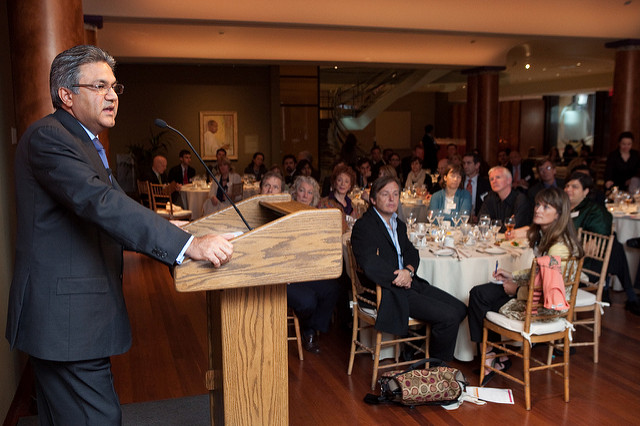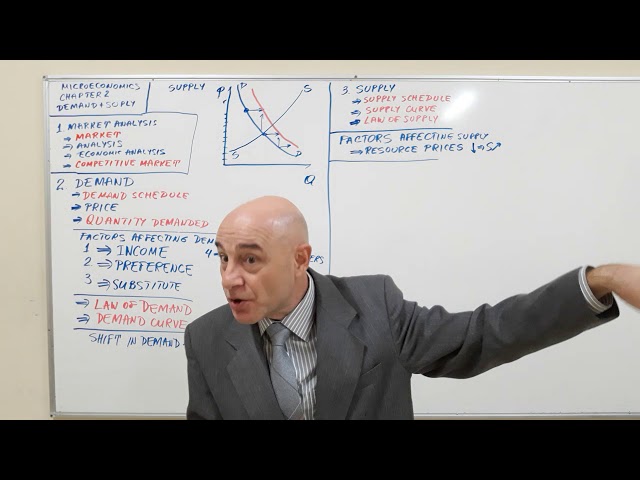Ceremonial Speaking
Ceremonial speaking is a form of public speaking that focuses on formal occasions and special events. It involves delivering speeches, toasts, or presentations in a manner that is both respectful and engaging to the audience.
In ceremonial speaking, speakers often use rhetorical techniques to create a memorable and impactful experience. This type of speaking requires careful planning, thoughtful content, and effective delivery to successfully convey the desired message and create a lasting impression. Whether it is a wedding toast, a graduation ceremony, or an awards banquet, ceremonial speaking plays a significant role in bringing people together and honoring the occasion.
We will explore the key elements of ceremonial speaking and provide tips for delivering a successful speech that resonates with the audience.
The Art Of Ceremonial Speaking
Ceremonial speaking is an art form that dates back centuries, serving as a powerful way to communicate and inspire. It is the art of delivering speeches or presentations at special events or formal occasions, such as weddings, graduations, award ceremonies, and conferences.
Understanding Ceremonial Speaking
In ceremonial speaking, the spoken word carries great significance. It is designed to enhance the atmosphere and create a memorable experience for the audience. Whether it’s delivering a heartfelt toast or delivering a commencement address, ceremonial speakers have a unique role to both entertain and provoke emotions.
Ceremonial speaking requires the speaker to have a deep understanding of their audience and the occasion itself. They must carefully craft their message to resonate with the listeners, leaving a lasting impact. Throughout history, renowned ceremonial speakers have captivated audiences with their eloquence, wit, and ability to connect on an emotional level.
Importance Of Ceremonial Speaking
Ceremonial speaking plays a vital role in various events and occasions. It serves as a means to honor individuals, celebrate milestones, and unite people in a shared experience. By delivering a well-crafted speech, a ceremonial speaker can set the tone, inspire change, and leave a lasting impression on the minds of the audience.
The importance of ceremonial speaking lies in its ability to create a sense of unity and connection among the listeners. It has the power to uplift spirits, inspire action, and foster a sense of belonging. A skilled ceremonial speaker can capture the attention of the audience, draw them into the moment, and leave them feeling empowered and motivated.
In conclusion, the art of ceremonial speaking is a skill that requires careful preparation, an understanding of the occasion, and a deep connection with the audience. It is an art form that is meant to celebrate and honor, leaving a lasting impact on those who experience it. By mastering the art of ceremonial speaking, one can effectively convey messages, inspire change, and create truly memorable experiences.

Credit: masscommunicationsldefazio.wordpress.com
Preparing For A Ceremonial Speech
A ceremonial speech is more than just the words spoken; it is a powerful tool to inspire, uplift, and honor. Whether you are delivering a commencement address, a eulogy, or a tribute speech, effective preparation is crucial. In this article, we will discuss how to prepare for a ceremonial speech, focusing on three key aspects: choosing the right topic, crafting a powerful opening, and structuring your speech.
Choosing The Right Topic
Before you start preparing your ceremonial speech, it is important to choose a topic that resonates with the occasion and the audience. Consider the purpose of the event and the emotions you want to evoke. Here are some guidelines to help you choose the right topic:
- Reflect on the theme of the event or the significance of the occasion.
- Select a topic that allows you to connect with the audience on a personal level.
- Consider the values, beliefs, and interests of the audience.
- Ensure the topic is appropriate and respectful for the occasion.
Crafting A Powerful Opening
The opening of your ceremonial speech sets the tone and captures the attention of the audience. It should be compelling, engaging, and reflective of the significance of the event. Here are some tips to help you craft a powerful opening:
- Begin with a thought-provoking quote or a relevant anecdote that relates to the occasion.
- Introduce yourself and establish your credibility or connection to the event.
- Use vivid language and descriptive imagery to create a captivating visual experience for the audience.
Structuring Your Speech
The structure of your ceremonial speech plays a vital role in delivering your message effectively. It helps the audience follow your thoughts and ensures a cohesive flow. Here is a suggested structure for your speech:
- Introduction: Start by expressing gratitude for the opportunity to speak and briefly introduce the occasion and its significance.
- Main Body: Organize your speech into two or three key points, each focusing on a specific aspect of the occasion or the person being honored. Use personal stories, examples, or quotes to support your points.
- Climax: Build up to the climax of your speech, where you deliver the most powerful message or tribute. Emphasize the importance of the occasion and leave a lasting impact on the audience.
- Conclusion: Wrap up your speech by summarizing your key points, reinforcing the main message, and expressing gratitude once again.
Remember to practice your ceremonial speech several times to ensure a smooth delivery. Pay attention to your tone, body language, and timing. By choosing the right topic, crafting a powerful opening, and structuring your speech effectively, you will be well on your way to delivering a memorable ceremonial speech that honors the occasion and inspires your audience.
Delivering An Impactful Ceremonial Speech
When it comes to delivering a ceremonial speech, the goal is to leave a lasting impact on the audience. Whether you’re commemorating a special occasion, honoring an individual, or celebrating an achievement, the way you deliver your speech can make all the difference in capturing the attention and emotions of your listeners. This blog post will explore three key aspects that contribute to an impactful ceremonial speech: captivating the audience, utilizing body language, and using vocal techniques.
Captivating The Audience
A captivating speech starts with a strong opening. Begin by grabbing the audience’s attention with a compelling story, a thought-provoking question, or a striking statistic. Keep your sentences short and concise to maintain clarity and engagement. Use bold and impactful words to emphasize your key points. By connecting with the audience right from the start, you create a foundation for them to stay interested throughout your speech.
Utilizing Body Language
Your body language plays a crucial role in delivering a memorable speech. Stand tall and maintain an upright posture to exude confidence. Make eye contact with different sections of the audience, allowing them to feel personally engaged. Use gestures to emphasize your words and create visual impact. A well-placed pause can amplify the effect of your message. Remember, your body language should complement your speech, conveying your passion and enthusiasm.
Using Vocal Techniques
Your voice can be a powerful tool in delivering an impactful ceremonial speech. Vary your tone and volume to add depth and emotion to your words. Speak clearly and enunciate each word to ensure your message is understood by all. Pacing your speech can create anticipation and maintain the audience’s interest. Pausing at strategic moments can help highlight important points and allow your audience time to reflect. By utilizing vocal techniques, you can effectively convey your message and evoke the desired response.

Credit: leverageedu.com
Memorable Ceremonial Speaking Techniques
Discover effective techniques for delivering memorable ceremonial speeches. Enhance your public speaking skills and captivate your audience with proven strategies to leave a lasting impression.
Incorporating Powerful Stories
One of the most effective ways to make a ceremonial speech memorable is to incorporate powerful stories. Storytelling has been an intrinsic part of human communication since ancient times, and it continues to captivate audiences to this day. By integrating personal anecdotes, historical narratives, or fictional tales, speakers can create an emotional connection with their listeners and leave a lasting impact. These stories should be relevant to the occasion and illustrate the central message or theme of the speech. When sharing a story, it’s crucial to use vivid language, appeal to the senses, and emphasize significant moments or turning points. By doing so, speakers can engage their audience on a deeper level, fostering a sense of empathy and understanding.
Strategic Use Of Humor
Another technique that can make a ceremonial speech memorable is the strategic use of humor. A well-timed joke, witty remark, or amusing anecdote can instantly lighten the atmosphere and create a memorable moment. Humor not only helps to capture the audience’s attention but also relieves tension, making the speech more enjoyable and entertaining. However, it’s important to consider the appropriateness of humor for the occasion and ensure that it aligns with the overall tone and purpose of the ceremony. Speakers should also be mindful of cultural differences and avoid offensive or controversial jokes. By incorporating humor in a strategic and tasteful manner, speakers can leave a lasting impression and create an enjoyable experience for their audience.
Overcoming Challenges In Ceremonial Speaking
Ceremonial speaking is a skill that requires not only mastery of public speaking techniques but also the ability to navigate unexpected challenges that may arise during the course of the event. In this article, we will explore two key challenges that ceremonial speakers often face and provide actionable tips to overcome them.
Managing Nervousness
Nervousness is a common issue that many speakers face, regardless of their experience level. However, there are strategies that can help you manage and overcome your nerves to deliver a confident and impactful speech.
Here are some actionable tips to manage nervousness:
- Breathe deeply and slowly before going on stage to calm your nervous system.
- Practice your speech multiple times to build familiarity and confidence.
- Visualize yourself delivering a successful speech to boost your confidence.
- Focus on the message you want to convey rather than worrying about how you are perceived.
- Engage in relaxation techniques, such as meditation or yoga, to reduce anxiety.
Dealing With Unexpected Situations
Just like in any live event, unexpected situations can arise during ceremonial speaking engagements. It is crucial for speakers to be prepared for these situations and handle them with grace and professionalism.
Here are some strategies to help you deal with unexpected situations:
- Stay calm and composed, even in the face of unexpected disruptions or interruptions.
- Adapt and improvise when necessary, by adjusting your speech or delivery to accommodate unforeseen circumstances.
- Have a backup plan in case of technical difficulties, such as having a printed copy of your speech.
- Maintain a positive and flexible mindset to navigate any unexpected changes or challenges that may arise.
- Practice active listening to ensure that you understand and respond appropriately to any questions or comments from the audience.
By employing these strategies, speakers can effectively manage their nervousness and handle unexpected situations, ensuring a smooth and successful ceremonial speaking experience. Remember, preparation and adaptability are the keys to overcoming these challenges and delivering a memorable speech.

Credit: uwm.pressbooks.pub
Frequently Asked Questions For Ceremonial Speaking
Can Anyone Become A Ceremonial Speaker?
Yes, anyone with effective communication skills and the willingness to learn can become a ceremonial speaker.
What Is The Importance Of Body Language In Ceremonial Speaking?
Body language plays a crucial role in ceremonial speaking as it conveys confidence, credibility, and enhances the overall impact of the speech.
How To Overcome Stage Fright During Ceremonial Speaking?
Practice, deep breathing exercises, and visualization techniques can help in overcoming stage fright during ceremonial speaking.
Conclusion
Mastering ceremonial speaking is an essential skill for captivating audiences and delivering impactful messages. By understanding the power of tone, body language, and rhetorical devices, individuals can elevate their speaking abilities to the next level. Whether it’s a wedding toast, a eulogy, or a corporate presentation, the art of ceremonial speaking has the potential to leave a lasting impression on listeners.
With practice and patience, anyone can become a confident and persuasive speaker, leaving their mark on any occasion.


